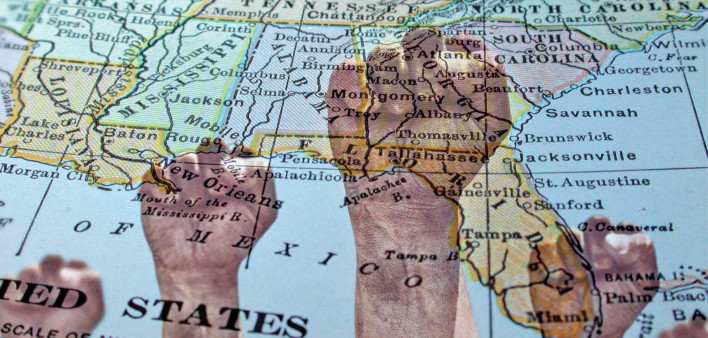Toi Washington, an African-American transgender woman and a native of New Orleans, Louisiana, works to empower trans women of color in the South through sharing her story and encouraging them to do the same. She is a Hurricane Katrina survivor, a community organizer, a licensed life coach, a public speaker and an HIV advocate, among many other roles.
Washington’s mantra that drives her work is simple but powerful.
“A person can forget what you did or said, but they will never forget how you made them feel. If I can help somebody along the way, then my living is not in vain.”
Washington is currently the director of programs at Transgender Advocates Knowledgeable Empowering, also known as the T.A.K.E. Resource Center.
“It is important that we as trans and cis women unite under similarities and the experiences that connect us, and use those experiences and similarities to form a sisterhood that connects both trans and cis to womanhood to combat the issues that affect us as women daily,” she said.
Washington is a part of AIDS United’s first-ever cohort of the Fund for Resilience, Equity and Engagement and the Transgender Leadership Initiative Leadership Development Program. These leaders were chosen through AIDS United’s grantee partner organizations as representatives of transgender and gender-nonconforming people and Black gay, bisexual, queer and same-gender-loving men — populations in our communities most disproportionately impacted by HIV.
We caught up with Washington to learn more about her story and how she works to mobilize her community to stop HIV together.
Tell us about the work of T.A.K.E. Resource Center.
T.A.K.E. Resource Center began as a peer support group for trans women of color and evolved to provide services and resources to this community in Birmingham, Alabama. The organization provides such resources as a crisis assistance fund, linkage to care, HIV prevention education, a drop-in center with access to clothing and personal hygiene items, legal services and much more.
How did you get into this field?
I have been active in the LGBTQ+ community for at least 20 years now. I became an activist and advocate 10 years ago in Atlanta. It was then I realized how important my voice and input were, and how important it was for me to use my voice and platform to advocate for those who felt they were voiceless. I began using my reputation, voice and platforms I created in the ballroom and pageantry community to raise awareness to issues that plagued my LGBTQ+ community with a concentration on my trans sisters of color.
How do we start to reduce the barriers preventing transgender women of color from accessing care?
First, location is a barrier to accessing services for those who are in rural areas. We have to expand service areas — or the area we do outreach to — and be able to provide a swift or prompt solutions once the need has been identified.
Second, I feel racism and religious beliefs create barriers for services and care. We must be creative and intentional with promotional material and know the demographic — and be more intentional and supportive in the approach. I know how serious one is by their approach. Every life has a meaning and purpose, and that message should be conveyed in one’s approach when attempting to bring someone into care or services.
Third, there’s a lack of unity, community effort and partnership. We need to understand what community partnership is and means, and we must understand that one organization cannot do everything or provide all the services. We need to offer or suggest those other organizations that offer a service you or your organization may not offer.
This work is not a competition; we are on a quest to save lives.
What are some of the challenges preventing trans women of color from being in executive leadership roles? What are some of the solutions to addressing those challenges?
One challenge is societal oppression. We must create an environment that builds confidence and knowledge to achieve goals and obtain success, becoming each other’s support systems.
There’s also a lack of support with a concentrated effort of education in the role of executive leadership or leadership when it comes to trans women of color. We need to create successful cohorts and academies like this one and others and provide trans women of color with the leadership and skills and components needed to be successful in executive director and leadership roles. It’s about using your platforms and organizations to build, empower and propel trans women of color into executive leadership roles.
Third, there’s a lack of education. A solution is using personnel or resources from organizations to assist with providing the educational skills, tools or continual education courses or skills needed.
Finally, there’s a fear of the past situations coming back to haunt our present state and a lack of support for trans women of color in leadership roles. We must empower trans women of color beyond their trauma by supporting and affirming the leadership qualities they embody or exhibit. We must be transparent and affirm that our past as trans women of color can be repurposed, and the lessons we have learned are our gifts to inspire the future.
The FREE and TLI Leadership Development Program was created as part of a joint initiative of the Fund for Resilience, Equity and Engagement, generously supported by the Elton John AIDS Foundation and the Transgender Leadership Initiative, generously supported by Janssen Pharmaceuticals.








1 Comment
1 Comment